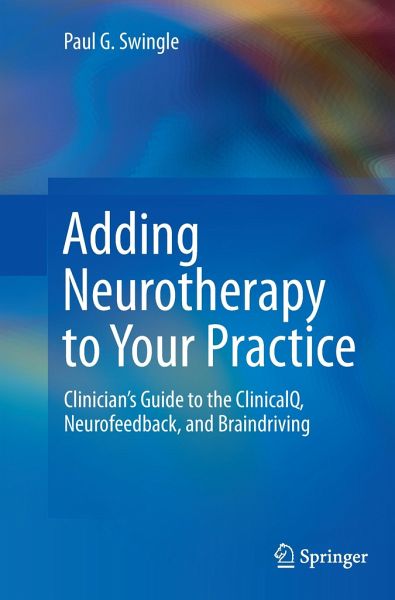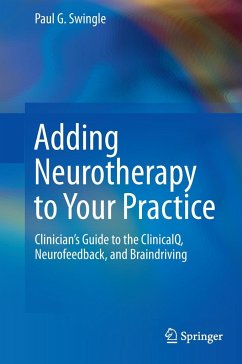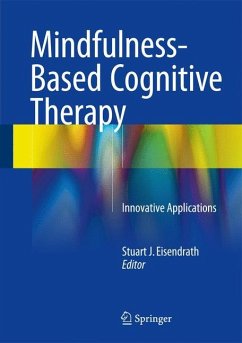
Adding Neurotherapy to Your Practice
Clinician's Guide to the ClinicalQ, Neurofeedback, and Braindriving
Versandkostenfrei!
Versandfertig in 6-10 Tagen
53,99 €
inkl. MwSt.
Weitere Ausgaben:

PAYBACK Punkte
27 °P sammeln!
This clinical manual argues for using neurotherapy to enhance mental health and medical practice across settings and specialties. The text takes readers through the tools and methods of neurotherapy: the ClinicalQ for intake assessment, a stimulated EEG modality called braindriving, and neurofeedback protocols to retrain brain function. Case studies demonstrate neurotherapy as an efficient component in treating brain-related and mind/body conditions and symptoms, from ADHD, sleep disturbances, and depression to fibromyalgia and seizures. Its methods allow clinicians to find deviations in brain...
This clinical manual argues for using neurotherapy to enhance mental health and medical practice across settings and specialties. The text takes readers through the tools and methods of neurotherapy: the ClinicalQ for intake assessment, a stimulated EEG modality called braindriving, and neurofeedback protocols to retrain brain function. Case studies demonstrate neurotherapy as an efficient component in treating brain-related and mind/body conditions and symptoms, from ADHD, sleep disturbances, and depression to fibromyalgia and seizures. Its methods allow clinicians to find deviations in brain function that fall through the diagnostic cracks and choose therapeutic interventions best suited to clients based on reliable data.
Included in the coverage:
Treating the condition instead of the diagnosis.Case examples illustrating how to conduct the ClinicalQ, interpret results, and convey them to clients.Sample protocols of braindriving and neurofeedback.Using therapeuticharmonics to advance neurotherapy.Age-appropriate neurotherapy for children and seniors.Brainwave diagrams, data tables, client forms, and other helpful tools and visuals.
Adding Neurotherapy to Your Practice will interest psychologists, physicians, psychiatrists, chiropractors, and social workers. This stimulating presentation emphasizes the individuality of every client, and the abundant healing capacity of the brain.
Included in the coverage:
Treating the condition instead of the diagnosis.Case examples illustrating how to conduct the ClinicalQ, interpret results, and convey them to clients.Sample protocols of braindriving and neurofeedback.Using therapeuticharmonics to advance neurotherapy.Age-appropriate neurotherapy for children and seniors.Brainwave diagrams, data tables, client forms, and other helpful tools and visuals.
Adding Neurotherapy to Your Practice will interest psychologists, physicians, psychiatrists, chiropractors, and social workers. This stimulating presentation emphasizes the individuality of every client, and the abundant healing capacity of the brain.














